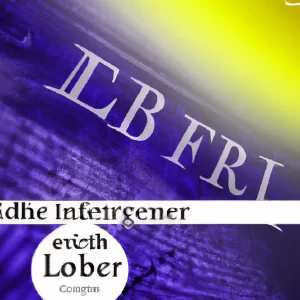Introduction
In the scenic and thriving region of Long Island, New York, residents often seek ways to preserve their assets, protect their wealth, and secure their family’s financial future. Trusts have emerged as a powerful estate planning tool that can accomplish these objectives and more. At Morgan Legal Group PLLP, our team of experienced attorneys understands the intricacies of Long Island trust law and is dedicated to guiding individuals and families through the process of creating a comprehensive trust plan tailored to their specific needs.
In this blog, we will explore the important role of a Long Island Trust Law Attorney in helping you understand the various types of trusts available, the benefits they offer, and how they can be customized to suit your financial goals. From revocable living trusts to irrevocable trusts and everything in between, our firm is committed to assisting you in safeguarding your legacy and protecting your assets for future generations.
Understanding Trusts: An Overview
A trust is a legal entity that allows a person (the grantor or settlor) to transfer assets to a designated trustee for the benefit of one or more beneficiaries. Trusts can be established during the grantor’s lifetime (living trusts) or through their will (testamentary trusts). Trusts can serve various purposes and can be an integral part of a comprehensive estate plan.
The Three Key Parties in a Trust
Grantor/Settlor: The person who creates the trust and transfers assets into it.
Trustee: The individual or entity responsible for managing the trust and its assets.
Beneficiary: The person or persons who receive the benefits of the trust according to the grantor’s instructions.
Types of Trusts and Their Benefits
There are various types of trusts available, each with its unique benefits and purposes. Here are some commonly used trusts in Long Island estate planning:
1. Revocable Living Trust
A revocable living trust, also known as an inter vivos trust, is a flexible estate planning tool that allows the grantor to maintain control over the assets while alive. Some key benefits of a revocable living trust include:
Probate Avoidance: Assets in the trust pass directly to beneficiaries without going through probate, saving time and reducing costs.
Privacy: Unlike a will, which becomes a matter of public record upon probate, a living trust remains private.
Incapacity Planning: A living trust can provide for the management of assets if the grantor becomes incapacitated.
Flexibility: The grantor can modify or revoke the trust during their lifetime, making it adaptable to changing circumstances.
2. Irrevocable Trust
An irrevocable trust, as the name suggests, cannot be easily modified or revoked once established. Some benefits of an irrevocable trust include:
Asset Protection: Assets in an irrevocable trust are generally protected from creditors and lawsuits.
Tax Planning: Certain types of irrevocable trusts, such as life insurance trusts and charitable trusts, can offer tax benefits.
Medicaid Planning: An irrevocable Medicaid trust can help preserve assets while qualifying for Medicaid benefits.
3. Charitable Trusts
Charitable trusts are designed to support charitable organizations while providing potential tax benefits to the grantor. Common types of charitable trusts include:
Charitable Remainder Trust (CRT): Provides income to the grantor or other beneficiaries for a specified period, with the remainder going to the designated charity.
Charitable Lead Trust (CLT): Provides income to the charity for a specified period, with the remainder going to the grantor’s beneficiaries.
4. Special Needs Trust
A special needs trust is designed to support individuals with disabilities while allowing them to retain eligibility for government benefits.
5. Testamentary Trust
A testamentary trust is created through the grantor’s will and comes into effect after their death. It allows for greater control over the distribution of assets and can be useful in situations involving minor children or beneficiaries with specific needs.
The Role of an Experienced Long Island Trust Law Attorney
Navigating the complexities of trust law can be challenging, which is why enlisting the services of a knowledgeable Long Island Trust Law Attorney is essential. Here’s how an attorney can assist you:
1. Tailored Planning
A trust attorney can help you identify your specific goals and needs, tailoring a trust plan that aligns with your wishes and the unique circumstances of your family.
2. Drafting Legal Documents
An attorney will draft the necessary legal documents, ensuring that your trust is valid, comprehensive, and legally sound.
3. Minimizing Tax Implications
A skilled attorney can implement tax-saving strategies to minimize estate and gift taxes, helping you preserve more of your wealth for your loved ones and philanthropic pursuits.
4. Administering the Trust
If you establish a living trust, your attorney can help you fund the trust, ensuring that your assets are appropriately titled in the trust’s name.
5. Updating the Trust
Life is ever-changing, and your trust should reflect those changes. A trust attorney will review your trust regularly and recommend updates as needed to keep it in line with your current goals.
6. Mediating Disputes
In the event of trust-related disputes, an attorney can mediate between beneficiaries and trustees, ensuring that conflicts are resolved efficiently and in accordance with the trust’s terms.
Conclusion
As you consider your estate planning options, it is clear that establishing a trust can be a powerful way to protect your assets, provide for your loved ones, and leave a meaningful legacy. Whether you’re looking to create a revocable living trust to avoid probate or an irrevocable trust for asset protection, our team of experienced Long Island Trust Law Attorneys at Morgan Legal Group PLLP is here to guide you through the process.
We understand the importance of preserving your wealth and securing your family’s future. With our extensive knowledge of Long Island trust law and our commitment to personalized service, we can help you develop a trust plan that reflects your values and achieves your estate planning objectives.
Take the first step toward safeguarding your legacy. Contact Morgan Legal Group PLLP today to schedule a consultation with one of our skilled Long Island Trust Law Attorneys. Let us provide you with the peace of mind that comes from knowing your assets are protected and your loved ones are provided for in the years to come.






